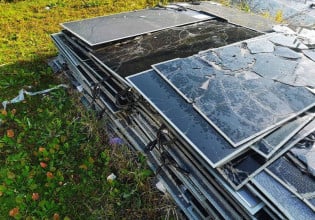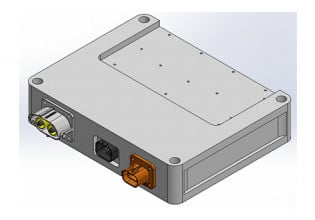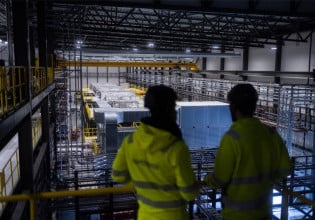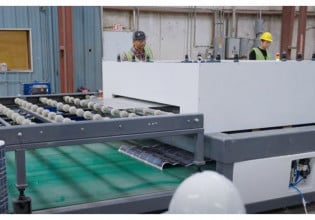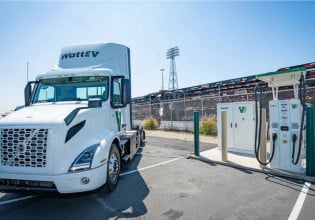Ilika Scaling up Solid-State Pouch Battery Tech for EVs
Ilika receives further funds to scale-up production of its Goliathsolid-state battery technology for electric vehicles.
Solid-state battery technology specialist, Ilika, has announced the receipt of £175,000 in grant funding from Innovate UK’s Automotive Transformation Fund (ATF). Ilika will use the funds to shore up its industrialization endeavors for its Goliath solid-state battery (SSB) technology for electric vehicles (EVs).

Image used courtesy of GM
Lithium-ion vs. Solid-state Batteries
Traditionally, the lithium-ion battery (LiB) has been heralded as the gold standard in battery technology for power electronics devices and EVs because of inherent features, including low self-discharge, high energy density, no memory effect, low maintenance, and higher cell voltage. Despite these attractive features, other facets of LiB make-up have been challenging for electrical engineers and researchers to overcome.
Lithium batteries typically employ an organic liquid electrolyte known to be highly flammable and volatile. When subjected to high temperatures, LiBs can ignite, causing fires or explosions. Despite this, research is advancing to integrate the use of low-flammable and non-flammable electrolyte materials to avoid this problem.

An image depicting the structure of an LiB and SSB. Image used courtesy of Samsung
According to The American Society of mechanical engineers (ASME), LiBs can be a limitation for driving range, have a short calendar life, and incur high material costs.
In contrast to a LiB, an SSB uses a solid electrolyte (SE) to separate the battery anode and cathode. This provides greater stability and safety with less-flammable material. Extensive cooling systems- otherwise required for LiBs- would not be needed in SSBs, which saves on space and promotes flexibility in battery design. Electrical engineers could benefit from saving time in battery design.
Because the SE acts as a separator, elements such as the separator and casing used in LiBs can be removed. This is another space-saving step that can allow SSBs to be downscaled in size and incorporate more energy per unit weight than LiBs.
Ilika’s Solid-state Pouch Technology
Among the three main battery formats, the pouch cell is gaining popularity in automotive, power electronics, and energy storage applications.
Among the companies researching and developing SSBs with a pouch cell format (such as QuantumScape and Natrion), Ilika is gearing up to funnel its recent intake of funds into scaling up the production of its solid-state pouch technology and developing the SSB supply chain. Ilika’s solid-state pouch technology uses an oxide solid electrolyte and silicon anode.
As opposed to a prismatic or cylindrical cell, a pouch cell incorporates an aluminum coating which gives a battery a lighter weight structure.

An image depicting the structure of a lithium-ion pouch cell. Image used courtesy of Avocet Precision Metals
General Motors (GM) favors the pouch cell format with its Ultium battery using long pouch cells in a pancake-like stack to save space and allow engineers to adjust energy density as required.
For Tesla Motors, large pouch cell form factors are not the way to go. In a tweet, Tesla CEO Elon Musk said, “Probability of thermal runaway is dangerously high with large pouch cells.”
There appear to be some strong opinions among automotive original equipment manufacturers (OEMs). Despite this, companies like Ilika continue to develop SSB pouch cell technology to support the e-mobility movement.
Battery Collaboration for A Greener Future
Ilika has been busy working alongside the UK Battery Industrialisation Centre (UKBIC) on a six-month study to assess the economic feasibility of establishing a pilot 100-megawatt hour (MWh) SSB manufacturing line at UKBIC facilities.
Coming on the heels of the SOLSTICE project, this project was funded by the Advanced Propulsion Center and led by Ilika and Comau (a member of Stellantis). The project supports the scale-up of Ilika’s Goliath SSB technology for EVs and produced a blueprint for a mega-scale manufactory.
The ATF grant will facilitate a series of manufacturing equipment trials spanning nine months. These trials are expected to help bring Ilika’s SSB technology to commercial markets. According to Ilika, the objective is to move from a small-scale pilot facility to a large facility and then a giga-scale factory “under licensing and off-take agreements in collaboration with battery giga factories and OEMs.”


